
Book Review – Max Brooks’ Devolution: A Firsthand Account of the Rainier Sasquatch Massacre
So why is Devolution a gift you would only get your worst enemies, or at least the annoying coworker whose name you got for Secret Santa this year?
More Videos
Published
3 years agoon
By
Audrey III
At this point you may be panicking because the presents you bought over Labor Day still haven’t arrived yet and you’re just about willing to brave the closest COVID-infested mall to acquire some last minute gifts. I’m not here to tell you not to go out and risk your life for some last minute fuzzy socks (but seriously, don’t). I’m here to tell you what you shouldn’t waste your money on, and that’s Max Brooks relatively new book Devolution: A Firsthand Account of the Rainier Sasquatch Massacre, about a bunch of millennial hippies tangling it up with bigfoot (bigfoots? bigfeet?) in the Pacific Northwest.
But wait, isn’t Max Brooks that the son of Mel Brooks who wrote the highly entertaining The Zombie Survival Guide and World War Z? Yes, he is. But I would point out he also wrote the screenplay for The Great Wall starring Matt Damon, so let’s not act like his writing past isn’t at least a little bit sorted. So why is Devolution a gift you would only get your worst enemies, or at least the annoying coworker whose name you got for Secret Santa this year? Well, let’s just say this book is a bit lacking; as in, lacking plot, characterization, sense, or any kind of suspense.
Let me explain… No, there is too much. Let me sum up.
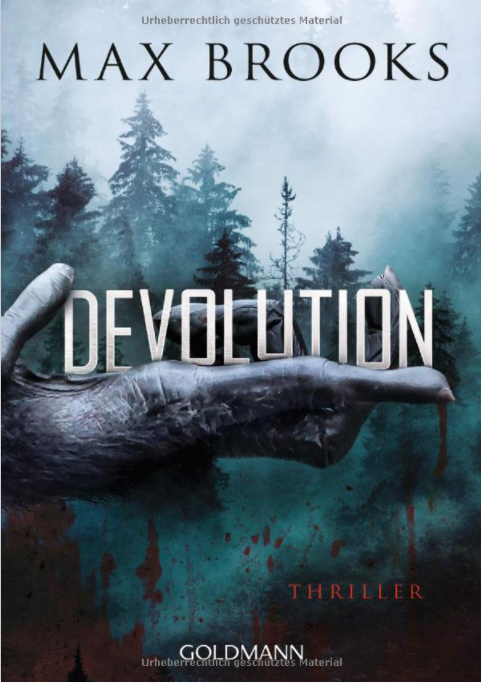
Devolution is formatted in a rambling series of journal entries, fictional interviews that may or may not have anything to do what’s going on in the main storyline, and bland excerpts on the behaviors of chimpanzees in the wild, which is what Brooks apparently thinks bigfoot are.
Our main character who’s journal we follow is Kate Holland- a complete doormat who does whatever she’s told, never questions anything, and who’s main skill set seems to be using a phone app to count calories. With her is her husband Dan, who I think may have been a zombie with how little personality or presence he had.
Katie and Dan have just moved to a purposely cut off from the world small wilderness eco-friendly village of Greenloop near Mount Rainier. And here’s where the problem comes in, because Greenloop is populated by nothing but clueless liberal stereotype characters. There’s the lesbian couple with their non-speaking foreign adopted daughter, the fat college professor who thinks he knows everything, the rich tech start up guy and his vegan yoga instructor wife, and the oddball glass artist war refugee lady who everyone thinks is a little crazy because she’s the only one with any sort of survival skills whatsoever. There might have been more, but in the end none of them really mattered as characters because they were merely shallow sitcom stereotypes of what Fox News would call liberal elites.
The gist of Katie’s story is that, almost as soon as she and Dan move Greenloop, Mount Rainier erupts, causing mudslides that cut off Greenloop from the outside world or from any escape by the residents. That’s when things start going downhill, and boy do they go downhill FAST. I should point out that the course of the entire story takes place over approximately two weeks. Not two months, or even two years, two WEEKS. Because that’s how fast a bunch of liberal elites would fall apart if left of their own, according to the author anyway.
Almost immediately people are panicking about rationing food, how long before they might get rescued, whether or not they can host their yoga classes, etc. And of course they have no emergency supplies because, why would they? At one point Katie even points out that there isn’t a hammer in the whole village. I mean, really? Really?
“How many people in L.A. have earthquake kits? How many Midwesterners are ready for tornadoes or northeasterners for blizzards? How many Gulf Coast residents stock up for hurricane season?” – PAGE 79
Obviously way more than you’d think, lady.
If you’re wondering where bigfoot fits into all this, so was I for over half the book. In fact, you could probably just skip the entire first half of the book and not really miss out on much. Bigfoot does eventually show, and then immediately proceeds to go on a murderous rampage with some sort of loosey-goosey survival of the fittest trite thrown in for good measure.
Considering how clueless and inept these people are, you can pretty much guess what happens. There’s no real satisfaction in watching them band together because it’s like giving a group of babies pencils and telling them to defend themselves against a rabid dog. Only in the babies case, you can sort of forgive them for being so helpless and inexperienced.
The very bottom line. Like, it’s way down there.
If Max Brooks was trying to make some kind of point with this book about how technology is making us all soft, he failed spectacularly. Instead he’s written a book about some unbelievably stupid characters that mostly get eaten by giant chimpanzee due to their own incompetence. So much of this book just felt lazy in the extreme, from the setup to the timeline to the depictions of a historic cryptid. It’s kind of telling when the most interesting parts of the book were actually excerpts from Teddy Roosevelt’s 1923 book The Wildness Hunter about bigfoot.
If this had been a book about some average people that were trapped in the middle of a natural disaster with bigfoot, imagine how great that would have been. Unfortunately, that’s not this book. One out of five Cthulhu. You’re probably better off watching Suburban Sasquatch and having a laugh.


Related posts:
- Paperbacks from Hell: The Twisted History of ’70s and ’80s Horror Fiction
- True Crime Studies: Philip Carlo’s ‘The Night Stalker’ is graphic nightmare fuel
- Stephen King’s latest novel ‘Later’ is fun, but mediocre compared to his usual works
- Pride Month Never Ends – The Return of the LGBTQ+ horror reads
You may like
1 Comment
Leave a Reply
Cancel reply
Leave a Reply
This site uses Akismet to reduce spam. Learn how your comment data is processed.
Dear readers, the time has come for some answers. At least, that’s what the teaser for the new installment of Monastery says. As usual, it delivers what it promised and more as we untangle the past and its connection to the present. Without any further ado, let’s talk about it, shall we?
Plot
We start the episode with a blast from the past. Cassandra and Celeste (Nicole’s aunt and Arthur’s lover for those with short-term memory) are in the hospital because of Celeste’s pregnancy complications. Cassandra promises her former best friend that she will ruin her all the while we find out Francis’s real parentage. The picture is finally starting to come together.
As we are back in the present day, our group is more scattered than ever. Thomas is his father Walt’s prisoner while David is still running around looking for Rocky. Fred on the other hand is just looking for any place to crash, homelessness and all. Our dethroned beauty queen Nicole is hiding away from everything – including her shame. Last but not least, little Henry is spending his time taking care of Nana Beth. Guessing that is his redemption for trashing all the evidence of Albert’s murder gathered so far. Although frustrating, his actions are understandable – the poor kid is traumatized and just wants some peace.
George Turner’s murder is still an active investigation. It is obvious that this cover-up wasn’t nearly as successful as Albert’s. I sure as hell hope that Francis gets his comeuppance sooner rather than later. Not particularly because Turner didn’t deserve it but so the rest of the characters would be safe from him. Although as I’ve said before, his clear descent into sociopathic tendencies is kind of fascinating to watch.
We also get an interesting development in what so far has been a tiny background detail, which is the Monastery Werewolf. As the creature comes to visit Rocky, we find out our resident star dog considers it family. Not going to lie, it took me a few reads to understand what this means. Now I’m getting all sorts of ideas as to how the supernatural ties into the rest of the story.
Speaking of the supernatural, it is none other than Madame Witch who frees Thomas from his captivity. Well, her contribution is indirect as she sends his best friend Alfie to help instead. Although I’d say currently the two should set their dynamic status to ‘it’s complicated’. As soon as he’s free, Thomas is immediately back in his detective mode. For arguably the first time he gets some real answers as we find out the whole backstory of Albert/Celeste/Cassandra triangle. I won’t go into details as that trio deserve their own article but let’s just say it gives Cassandra a big ass motive for killing her husband. Not to mention the way she took Francis from Celeste was quite brutal to read.
We reach the lead-on for the grand finale as David and Henry are coming to free Rocky. This naturally comes with a condition – they must hand Francis the key they found during the investigation. Little do they know Nicole is already there being held at gunpoint. Oh, and Fred should also be around somewhere as he was sleeping there the night before. Thomas might be a little late to the party since he and Alfie are held a knifepoint by Rick (seems like a running theme here). Nothing good can come from this.
Overall thoughts
This episode does a perfect job of setting up the big finale. It reveals everything we need to know except the main question – who killed Albert? At this point, while it of course still matters, this story is so much more than that. It’s about all the mess that this family has got themselves into, how with each mistake they kept digging deeper, and how it took a whole new generation for all of that to come up to the surface. I can only hope our investigative gang will make it out alive…

More thoughts from the author:
1. Although a minor character in comparison, Walt strikes me as someone who’s there to represent the themes of Monastery – someone who will do horrible things in the name of family. What was your intention with his characterisation, especially considering he works for justice (aka the police?)
This is why I will always defend my decision to have a large cast, as opposed to most books – when you get even the slightest sense of fleshing out a minor character, it feels so rewarding. Walt, to me, takes the crown of “father of the year”, even if he does it by locking his son up in the bedroom. He is protecting his wife’s secret, protecting his son’s innocence, and doing so by going against his core ideals – i.e., a detective covering up a murder. He’s also based on a favourite uncle of mine, so it makes me happy to give him his moment to shine.
2. Something I thought of while writing this review – the cover up of George Turner’s murder seems to be a kind of juxtaposition as to how neatly Albert’s was since the police keep discovering evidence left and right (and how Francis doesn’t particularly seem to care). Was this intentional on your part?
It all adds up to plot convenience, and I have no shame in admitting that – Albert’s murder was so neatly covered up because I needed it to go unsolved for 14 years, whereas the reader knows who killed George, so there is no need for the cover-up to be well done.
As for Francis’ reaction to the murder, he started out anxious and paranoid after the fact, but he has grown into a state of not caring, which further depicts his descent into darkness – he knows he’s close to his goal (of finding the money and leaving his family), so there is a sense of invincibility taking over. He is stepping into his main villain energy and we are here for it!
3. Alfie has been yet another background character until now and yet he is the one who rescues Thomas. To me he seems like the friend who genuinely cares for Thomas and who gives him that reality check he sometimes needs to get out of his own head. Was that at least partially why you chose to bring him in for the grand finale?
Fun fact: Alfie was originally a series regular. However, halfway through writing the series, I realised I wasn’t using him as much as I’d wanted to, so I bumped him down to recurring. But the original plan always saw him and the other regulars coming together for the big climax, which is why he is in the fold. Alfie is someone who keeps Thomas grounded (if not humbled), since Thomas has the slight tendency to, well, think he’s better than everyone else. What’s coming up for them is one of the most exciting things I’ve ever written about.
4. Lastly, it’s not so much a question but rather a well done for how you crafted the Albert-Celeste-Cassandra dynamic! I was very invested despite knowing the outcome. Weirdly enough, while hating Cassandra for how she handled it, I sort of understood why she thought that Celeste deserved it? Either way, congrats for managing to craft these love stories in the midst of all the murdery goodness.
Thank you so much. As I’ve said before, romance is not my strong suit, but I do love a soapy triangle – and if it ends with gun violence, even better! The reveal of this mystery is probably my favourite sequence in the series so far.
The evils lurking Los Angeles are unveiled in CJ Leede’s 2023 debut novel, Maeve Fly. The novel is a gruesome love letter and ode to Los Angeles and horror icons, centering on the titular character, Maeve Fly. She is, in short, a Disney Princess and serial killer.
Below the Depths of Anaheim
By day, Maeve Fly works as a princess in “the park.” It is is never named, but obviously Disneyland as depicted by Maeve’s vibrant descriptions of the princesses, furry costumed animals, and movie-themed rides. She plays a Scandinavian princess (Elsa) and genuinely loves the job and her coworker, Kate. In her personal life, Maeve tends to her sick, comatose grandmother, former starlet Tallulah, and her grandmother’s cat.
Maeve has an ordinary personal life, including going out with Kate and takes biweekly, afternoon trips to a Tiki bar in which she, a man who may or may not be Johnny Depp, and the bartender are the only patrons. Her interests include the macabre and all things horror and Los Angeles history, her love for the city a central theme throughout the novel. When Maeve meets Kate’s brother, Gideon, Maeve’s sense of self unravels.
Mirroring Fiction
The problem with Maeve’s sense of self, however, is that she has no idea who she really is. She adopts the personalities of literary characters, from Dostoevsky’s Notes from Underground narrator to those in James, Kant and Milton novels.
Maeve is selfish, antagonistic, and very selective of the people she lets in her life. She is an unreliable narrator with an unpredictable temper and ultraviolent tendencies.
Leede’s prose and writing of Maeve invites a new narrative to the genre. Maeve is persistent in her disgust with how often villains need a tragic backstory as excuse for their monstrous behavior, especially when the villains are women. Leede dismantles that trope and provides Maeve with no reason for her treacherous behavior. It is simply who Maeve is.
An Ode to Horror
Maeve Fly is everything I love in a horror story. It is an unpredictable slasher with comedy and heart. Leede has displayed her talent for writing horror. She has created a story that pays its dues to the genre’s long iconic history — one example is the references to Pyscho or American Psycho — but is wholly unique in it’s own form. From captivating dialogue to visceral depictions of horror history and Los Angeles’ sites, like the La Brea Tar Pits, the novel sucks you in until the very last, bone chilling sentence.

Released in August of last year, Mister Magic is written by author Kiersten White. And I’m going to give you the warning that I wish I’d have had when I started reading it.
This book deals largely with the systemic issues prevalent in the Church of Jesus Christ of Latter-Day Saints. While there are no overt discussions or descriptions of child abuse, I would argue that it’s alluded to.
In the interest of full disclosure, White lets us know in the acknowledgments that she was raised Mormon and is not anymore. I was also raised Mormon and am not anymore. And this book wrecked me.
The story
Our story begins with a young woman named Val. She’s been living with her father on an off-the-grid farm for most of her life.
When he dies, a mysterious stranger shows up at his funeral. This man, named Marcus, seems to know her right away. She knows him as well, though she doesn’t seem to remember why.
Eventually, he explains that she was on a children’s TV show called Mister Magic. A show that she has no memory of at all.
And this makes sense because there is little to no evidence online that the show exists. There are no clips, no scripts, no cast lists. It’s as if the show vanished entirely when the last episode aired.
Oh, and during that last episode, a kid probably died.
Desperate to remember her childhood and maybe even reconnect with her mother, Val leaves with her former cast mates for a reunion and podcast taping.
As the Circle of Friends reforms, fans of the show online rejoice. If the cast is getting back together, it must mean Mister Magic is coming back.
And that’s exactly what the mysterious creators have in mind.
What worked
This book shows a world that is all but impossible to describe from the outside. Long before I realized this book was an allegory for Mormonism, I was catching signs. It felt familiar.
Everyone was a little too nice. Everyone seemed to be holding back a little. Everyone seemed eager to do things for other people, almost like they felt like they had to justify their presence.
I also appreciated that we talked about child abuse without talking about child abuse. Through the book, we learn that one member of the cast, Kitty, is missing. Her disappearance heralded the end of the show, but no one wanted to talk about what happened to her.
This, I thought, was a subtle and brilliant way to talk about abuse without having to go into upsetting details. And in not adding these details, White leaves us to invent them ourselves. Which is always worse.
Sometimes it’s the notes you don’t play that make the biggest impression.
To that same end, there is no real gore in this book. No charred bodies, no blood. No gruesome scenes at all. But I feel like that was intentional. I’ll also point out that in reading other reviews for the book, I noticed that others criticized the character for being rather bland and one-dimensional. Both of those things are likely on purpose, and part of proving a point.
In the book, each character remembers Mister Magic pulling them back. He taught them the habit of dulling themselves down. Don’t paint in such a wild manner. Don’t shout so loud. Don’t stray too far.
Don’t draw attention to yourself. Don’t be different.
In the end, Mister Magic managed to do exactly what the very best horror does. It took a real horror that most people do not experience and turned it into a metaphor that everyone can understand. And it doesn’t have to be just former Latter Day Saints members. All survivors of religious abuse will see themselves in this. But we’ll also see all the other lost children, trapped with Mister Magic, and realize we are not alone.

If you’re a fan of my work, please check out my latest story, Nova, on Paper Beats World. New chapters launch every Monday, Wednesday, and Friday.


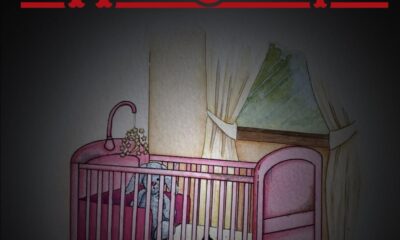

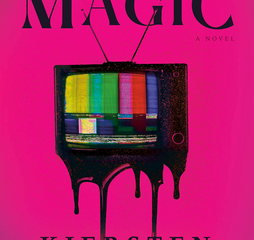

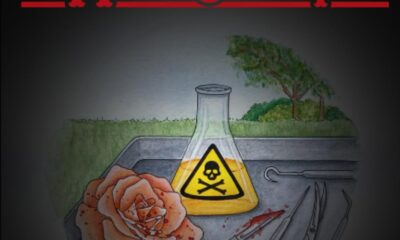



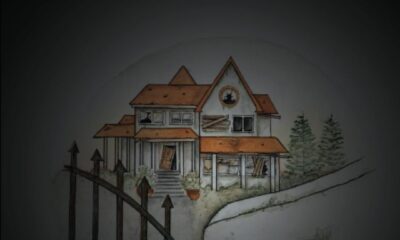

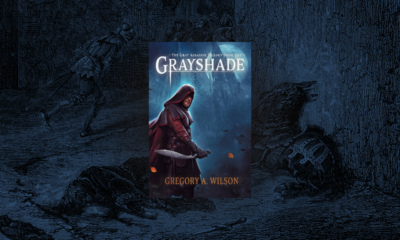




Sarah Moon
January 6, 2021 at 8:22 am
I am so glad I’m not the only one that feels this way about Max Brooks!